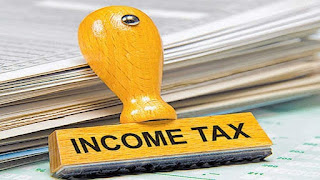New ITR filing deadlines: Form 16 delayed, Income tax filing due date extended and more
As per the income tax law, individual taxpayers filing ITR-1 or 4 are required to file their return for the previous financial year (2020-21), which ended March 2021, by 31 July 2021. The deadline for companies and firms whose accounts are to be audited is 31 October.
Individuals can now file their tax returns for income earned during the financial year 2020-21 by 30 September as the government has extended the I-T return filing deadline. The Central Board of Direct Taxes (CBDT) has also extended the ITR filing deadline for companies by a month till November 30.
In a circular, the CBDT eased by a month till July 15, 2021, the deadline for issuing Form 16 by employers to employees.
The due date for filing the tax audit report and transfer pricing certificate has been extended by a month till October 31 and November 30, respectively.
An assessee who does not submit a return of income within the deadline is allowed to file a belated return at a later time, with a certain penalty. For filing belated or revised return of income the due date is now January 31, 2022
The deadline for financial institutions to furnish the Statement of Financial Transaction (SFT) report has been extended till June 30, from May 31, 2021.
The dates have been extended keeping in view the second wave of the COVID-19 pandemic and the restrictions imposed by state governments and local administrations in various parts of the country.
For 2020-21, the government had given taxpayers the option to choose a new tax regime under section 115BAC of the I-T Act. Under this, annual income up to ₹2.5 lakh is exempt from tax. Those individuals earning between ₹2.5 lakh and ₹5 lakh will pay 5 per cent tax. Income between ₹5 and 7.5 lakh will be taxed at 10 per cent, while those between ₹7.5 and 10 lakh at 15 per cent.
Those earning between ₹10 and 12.5 lakh will pay tax at the rate of 20 per cent, while those between ₹12.5 and ₹15 lakh will pay at the rate of 25 per cent. Income above ₹15 lakh will be taxed at 30 per cent
Source:https://www.livemint.com/money/personal-finance/new-itr-filing-deadlines-form-16-delayed-income-tax-filing-due-date-extended-and-more-11622086630858.html
Download our App to get knowledge updates: https://play.google.com/store/apps/details?id=com.app.gstmitraa
Join Our Telegram Channel for more updates: https://t.me/praveengst




Comments
Post a Comment